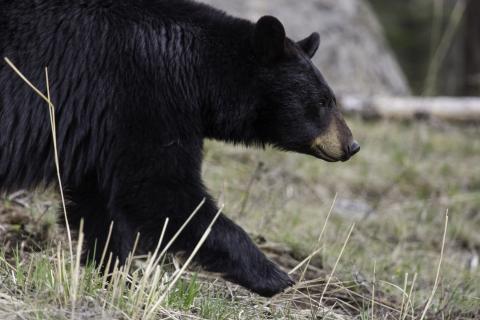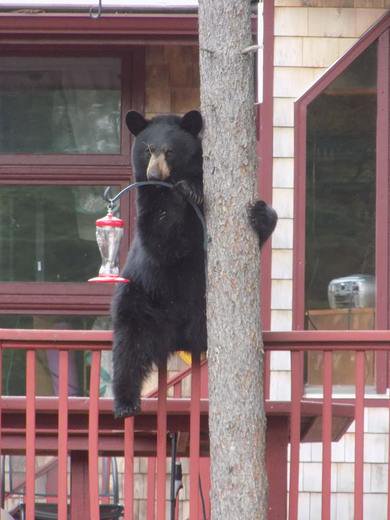Black Bear In The Neighborhood


Now that the snow is disappearing, black bears are waking up and becoming active. Since it’s still too early for many natural foods to be readily available, bears are more apt to be drawn to human food sources. One of the easiest things homeowners can do to keep bears from visiting their yards is to take down their birdfeeders. New Hampshire Fish and Game recommends that all birdfeeders be removed from April 1st to December 1st, so if you haven’t yet cleaned and put away your feeders, now is the time.
Garbage is also another potential bear attractant. Always keep your garbage in secure, tight-fitting containers that bears can’t knock over, and if possible store trash in the garage or shed. Bears have a keen sense of smell and are usually lured to the odor of garbage. Limit this by double bagging smelly trash and cleaning garbage bins with ammonia. Other things can attract bears as well, such as pet food dishes that are kept outdoors and uncleaned barbeque grills. If you typically have these items in your yard, remember to clean and put them away after every use.
Black bears can be found in every county of New Hampshire. While black bears shouldn’t be feared, they also shouldn’t be encouraged to come close to humans or visit backyards. Bears that become too used to humans change their natural behaviors and often become nuisance. Feeding bears, even if it is unintentional, can put bears at deadly risk. Do yourself and the bears a favor this season – keep the bear attractants away!
If you want to learn more, visit the New Hampshire Fish and Game website where you’ll find tips on how to avoid conflicts with bears.
UNH Cooperative Extension Master Gardener volunteers share information about home, yard, and garden topics with the people of New Hampshire. Got questions? Master Gardeners provide practical help finding answers to your questions through the Ask UNH Extension Infoline. Call toll free at 1-877-398-4769, Monday to Friday, 9 a.m. to 2 p.m., or e-mail us atanswers@unh.edu.
